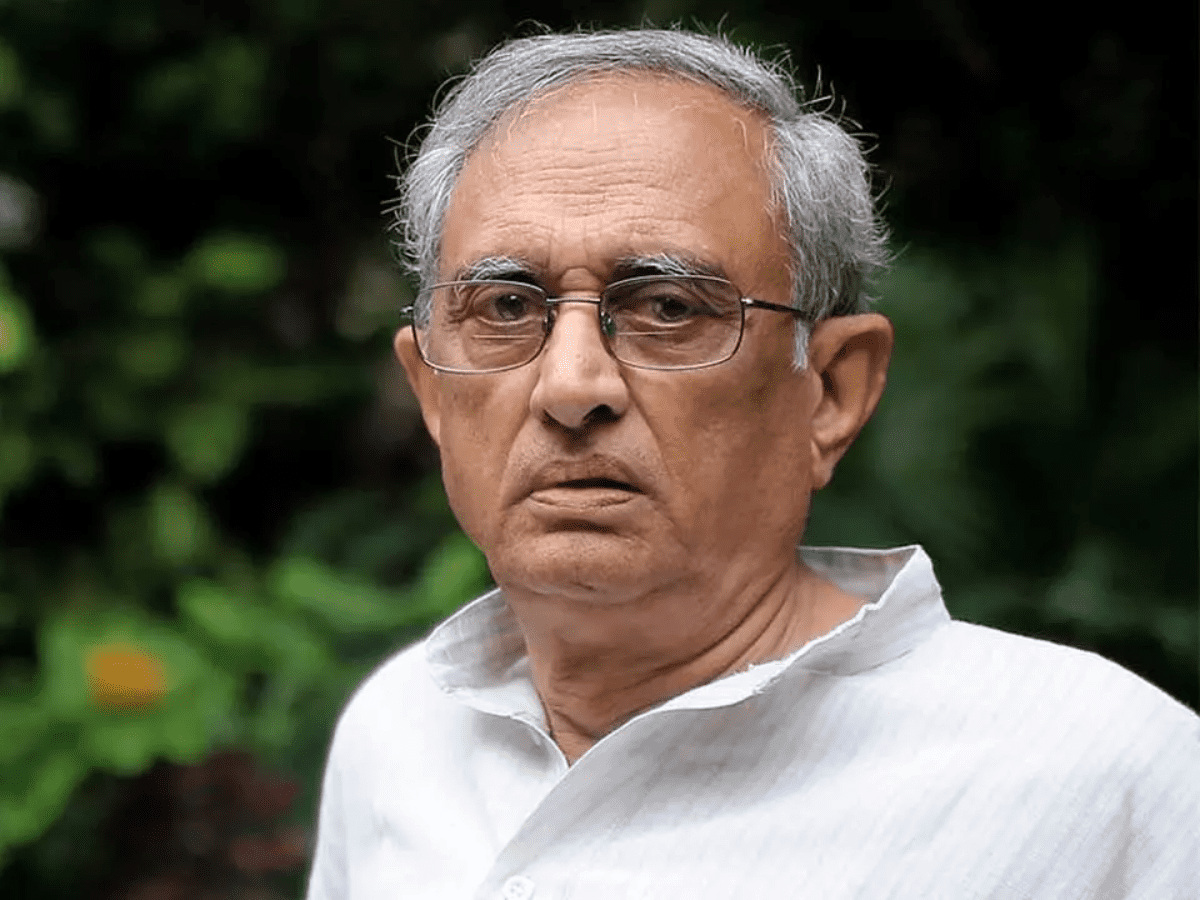
Former Secretary to the Government of India in the Ministries of Power and Finance, E A S Sarma, has written to the Chief Election Commissioner (ECE) Rajiv Kumar, election commissioners (EC) A C Pandey and Arun Goel regarding the recent comments of Union Home Minister Amit Shah regarding 2002 Gujarat riots.
Shah, while addressing a rally in Mahudha town of Kheda district, Gujarat on Friday, said those anti-social elements who indulged in violence in Gujarat in the past, supported by the Congress government, have been “taught a lesson” in 2002 when the Bharatiya Janata Party (BJP) came to power and established “permanent peace”.
Shah was referring to the infamous 2002 Gujarat riots that claimed thousands of lives, mainly Muslims, and destroyed many livelihoods.
Shah allegedly made a statement, “During the Congress rule in Gujarat (before 1995), communal riots were rampant. Congress used to incite people of different communities and castes to fight against each other. Through such riots, Congress had strengthened its vote bank and did injustice to a large section of the society.”
“But after they were taught a lesson in 2002, these elements left that path (of violence). They refrained from indulging in violence from 2002 till 2022. BJP has established permanent peace in Gujarat by taking strict action against those who used to indulge in communal violence,” the Union minister said.
Sarma, in his letter, mentioned the above quote by the Union Minister and stated that it violates the Modal Code of Conduct in force, especially in reference to the final clause. The clause says, “Religious places like Temple, Mosque, Church, Gurudwara or other places of worship shall not be used as forum for election propaganda. Further, there shall be no appeal to caste or communal feelings for securing votes.”
“Shah’s statement needs to be viewed by the Election Commission in conjunction with the reported fact that it was the Union Home Ministry that cleared the release of the eleven rape convicts in the Bilkis Bano case, directly related to the infamous Godhra incidents in 2002, which triggered the shameful sequence of events that shook the nation’s conscience. The background and the aftermath of the Gujarat incidents of 2002 are so widely known that I do not have to explain the same to the Commission in detail,” Sarma’s letter stated.
Sarma urged the Election Commission to act quickly “as the custodian of free and fair elections in Gujarat and elsewhere”
The letter said that an emergency meeting should be held to ascertain the veracity of the news report on Shah’s purported comments.
“If the said statement is found to be true, the Commission should, as required, give an opportunity to the person who has made the statement to explain his position, take immediate penal action if necessary, so as to ensure that after-effects of the statement may not interfere with the integrity of the electoral process in the state,” the letter said.
Sarma further said that if the alleged comments made by Shah are true, then it can affect the Gujarat assembly elections in the short term but have long-term implications for the nation as a whole.
Sarma further suggested postponement of the elections. “By token penalties imposed, the Commission may not be able to undo the considerable damage that would have already been caused, in which case, the only course of action left to the Commission is to consider deferment of the elections, till such time that the environment becomes conducive to conducting elections freely and fairly,” the letter stated.
Sarma also mentioned an earlier letter he had written to the election commission regarding the Union Ministry of Finance where the ministry notified an unprecedented extension of the window for political parties receiving corporate donations.
“I had expressed my concern in my letter addressed to you on 8-11-2022, with a special reference to the Model Code (readily accessible at https://countercurrents.org/2022/11/electoral-bond-notification-in-violation-of-model-code-of-conduct-ec-must-intervene/?swcfpc=1). To the best of my knowledge, the Commission is yet to initiate any meaningful action on it!” Sarma pointed out in the letter.
Reminding the inaction taken by the election commission in announcing the Gujarat elections on October 14, 2022, simultaneously with the announcement of the Himachal Pradesh elections, and then deferring the Gujarat elections till November 3, the Model Code of Conduct came into force only on November 3.
Sarma further mentioned that since the Model Code of Conduct came into action on November 3, the Gujarat state government inaugurated the ill-fated Morbi Bridge, which in turn resulted in human tragedy on October 30.
“Had the Commission announced the Gujarat elections along with its announcement of the HP elections, the Morbi accident would never have taken place! While the two events were not directly connected, it is a fact that the Commission did defer announcing the Gujarat elections, without citing any plausible and valid reason. It is essential that the Commission remains not only credible as a Constitutional authority but also appears to be so, in every respect,” the letter said.
Sarma concluded the letter hoping that the election commission would act firmly and decisively.
“Several incumbents of the office of the Commission in the past had demonstrated the authority of the Commission in its full measure and the people of this country, who repose trust in the Commission’s authority as an independent institution, expect the Commission to act objectively with the sole purpose of safeguarding the integrity and fairness of the electoral process, impervious to extraneous influences. The Commission cannot afford to permit political parties to indulge in divisive exhortations to the electorate and thereby influence elections against the public interest,” the letter said.
Sarma was a member of the Indian Administrative Service (IAS) from 1965-2000. He was earlier Principal Adviser (Energy) in the national Planning Commission. He was closely associated in setting up independent statutory regulatory bodies in the electricity, telecommunications and insurance sectors in India. After retirement from the IAS, he headed the Administrative Staff College of India, Hyderabad.
